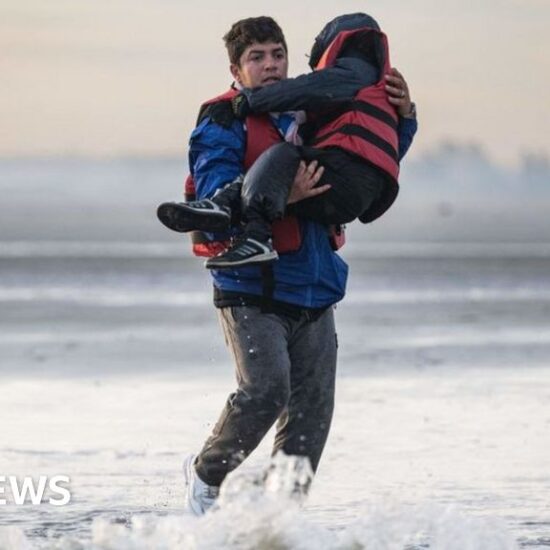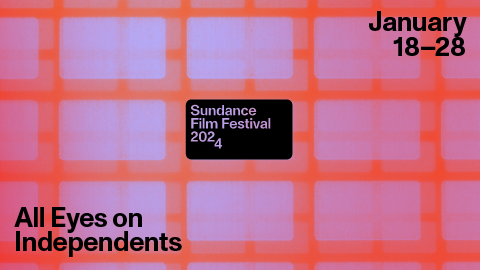
A renewed focus on labor and workers has clearly taken root in cinema, where working class structures have become sort of a cause celebre of filmmakers looking to try social commentary. But what films like Triangle of Sadness or Succession are inherently at a disadvantage in is that they involve people of wealth and power poking fun at themselves – a position of privilege that allows for pointing fingers and casting stone while holding the power to pick and choose how badly you want to hurt yourself. In the Sundance documentaries Kokomo City and Against the Tide however, the people speaking are the workers themselves, and the filmmakers allow their words and actions to dictate the stories being told.
Kokomo City (D. Smith)
Kokomo City starts off with a story of a Black trans sex worker named Liyah Mitchell who recounts how she found herself in a dangerous situation with a client and thought she was going to die so she threatened to kill the client, and in a twist of fate, they ended up becoming friends. One of the great talents of a documentarian is not only allowing subjects to be comfortable enough to tell the most intimate parts of their lives but also knowing where to put them in the movie. There is an undeniable vibrancy from the beginning of D. Smith’s film that makes its commentary on trans sex work much more authentically registered as well as politically clear-voiced than the higher-profile film The Stroll which also premiered at Sundance.
Taking interviews of four sex workers of different generations, different clientele, as well as different locations (mostly New York and Georgia) unearths the experience in this line of work as tragically similar but also varied in approach to politics. A large part of the film speaks to various risks imposed on trans women, but also the different ways they’re able to display levels of empowerment through their work – a conundrum both validating and vulnerable. Many of them tell stories of how they were threatened by both police officers and clients. Many of the clients come from low-income neighborhoods and many of them are gang affiliated.
Smith is a two-time Grammy-winning producer and artist and the film’s visual approach matches a music video sensibility that mixes stark black-and-white cinematography with animated graphics and splashes of color accentuating the verbiage of its subjects. There isn’t just a talking-heads approach to the framing of interviews. It mixes staged positions – sex workers lounging in their apartments or back gardens, taking a hot bath, driving their cars – that always frame the subject along with the personality of the space around them.
The movie reaffirms both the positive and negative elements of the world inhabited by these workers and the intricate dynamics and displays of gamesmanship required to navigate relationships within it. Daniella Carter is the most outwardly politically spoken of the interview subjects, tying her work directly to the politics that inform her. She possesses a demeanor of knowing herself intimately and understanding the political dynamics to which she is more than comfortable taking advantage of them. She says “It’s like a broken-down car but making a sound like’s a mustang or a Porsche. We’ve broken down but have a great way of making ourselves stand out.” There is also a conscious acknowledgment of breaking down stereotypes of the Black community when it surrounds ideas of trans identity and sex work that can be closely guarded because of vulnerability and social pressure.
Against the Tide (Sarvnik Kaur)
The fishermen on the coast of Mumbai are in a different struggle, one where the limiting factor is beyond their control; mother nature. Sarvnik Kaur’s Against the Tide presents not only an uphill battle within the structures of the fishing industry but fighting against the way of nature itself as a resource pool. At once, this dynamic becomes one where the most vulnerable workers – in this case, the fishermen of the indigenous Koli community – the lowest-rung independent fishermen catching near the coast, suffer the brunt of both the commercial industry swallowing them and climate change destroying any viability for sustaining their jobs. Rakhesh lives in a meager home near the coast and his one-man fishing vessel are the literal life raft his family relies on for existence.

Aboard the boats, the job itself is as meager and cumbersome as life at home. Kaur gives the full brunt of the uneasiness, labor-intensive exhaustion, and level of increased disappointment that occurs every time these fishermen go out into the water. While Vittorio de Seta’s seminal working-class fishing documentary Peasants of the Sea showcased a vibrant and thriving, albeit poor, community of fishermen on their daily expedition, Against the Tide is a much more somber look, one in which modernism and overconsumption that stripped not only the resources but the joys in the payoff of a hard day’s work. The diminishing returns for increased labor are a completely unsustainable venture. Thus steps in commercial fishing, where automation and resource hoarding allow for little effort for maximum profits. The catch is, they now need to go further and further out into the sea, eating up more and more resources. Ganesh is Rakhesh’s childhood friend but one who managed to study abroad and is a business owner of a larger shipping team that hires freelance fishermen under contract to man his ships.
When Ganesh suggests to Rakhesh to come under his wing, Rakhesh is automatically skeptical. He says “but if I do that, it’s a relationship of unequal – it’s your money, it’s your boat. You will determine where and when I conduct my fishing.” More and more as India “progresses” into a global economic power, there is a toll that must be paid by the most vulnerable in society. If they want to survive, the wager is always the same – become subordinate or die alone.
The dichotomy of Rakhesh and Ganesh is presented not only in the economic ladder but in social conventions as well. Poorer families tend to be more traditional while wealthier people, exposed to Western culture, tend to stray from tradition. Ganesh’s Western education led to more economic opportunity than Rakhesh, signaling the reality that the Western world’s economic hold on developing nations is itself designed to make the rich richer and only through the means of capital enterprise. The tide, for the most vulnerable, is coming from all sides.
Does content like this matter to you?
Become a Member and support film journalism. Unlock access to all of Film Inquiry`s great articles. Join a community of like-minded readers who are passionate about cinema – get access to our private members Network, give back to independent filmmakers, and more.














